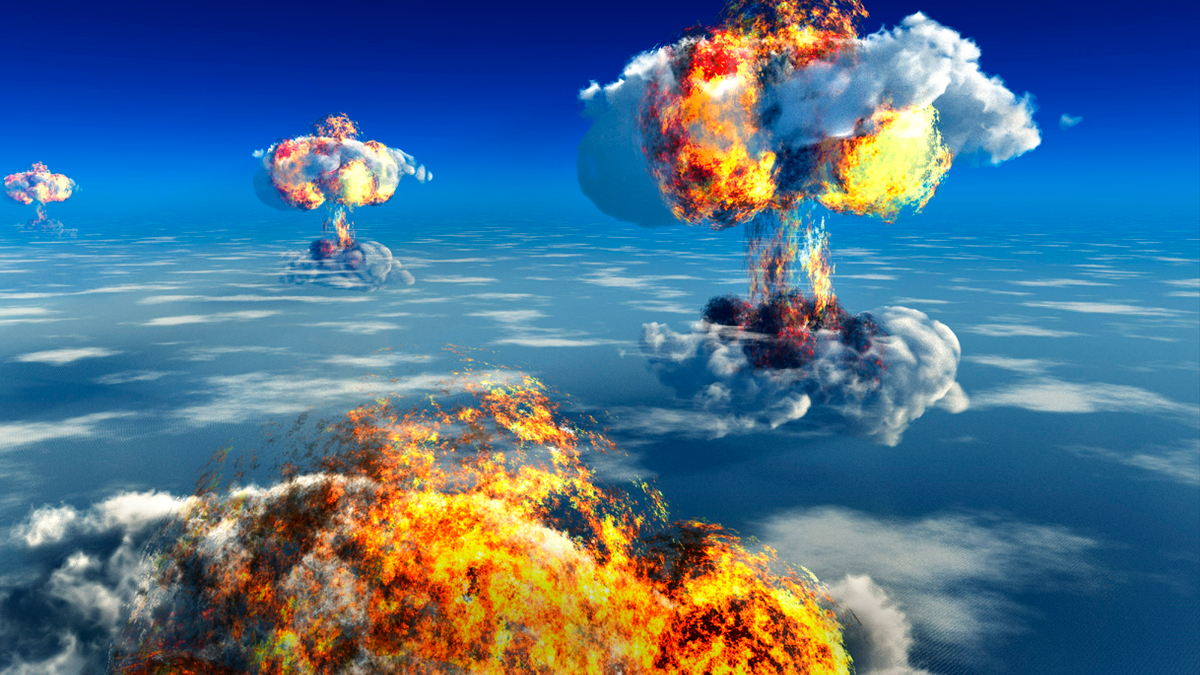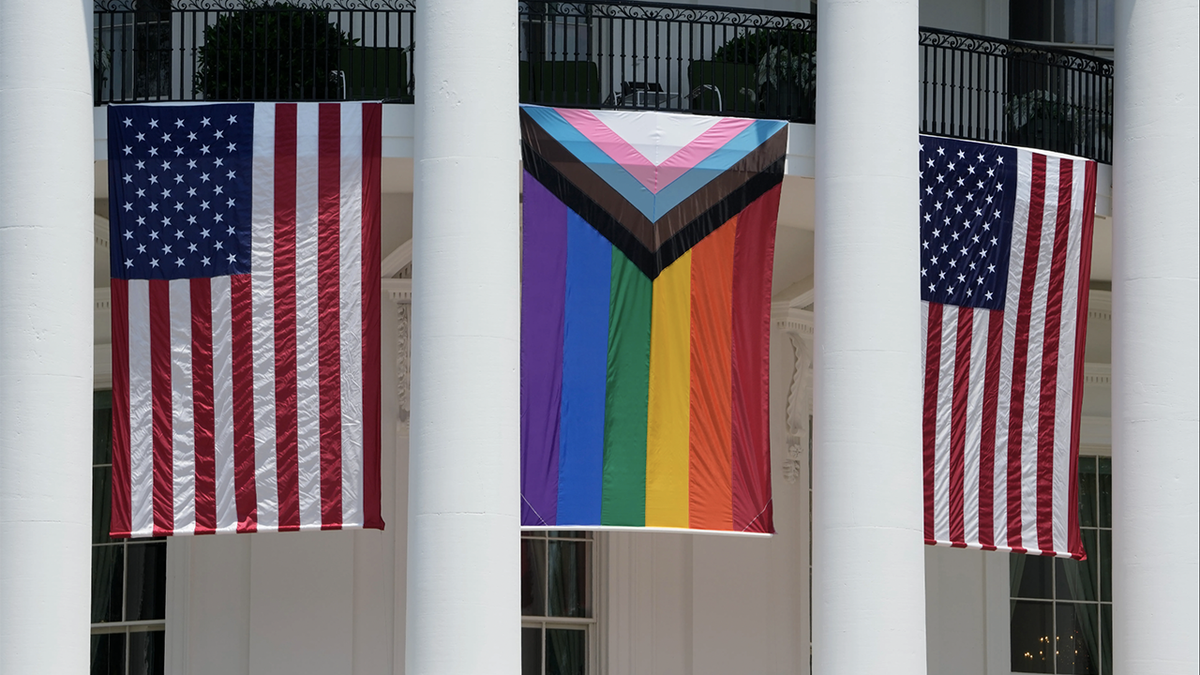Belarus receives Russian nuclear weapons
Strategic military intel analyst Rebekah Koffler calls Putin's move to send nuclear weapons to Belarus 'driven by fear.'
A publication famous for analyzing nuclear weapons policy theorized about applying LGBTQ+ ideology to nuclear weapons.
The Bulletin of the Atomic Scientists is famous for its "Doomsday Clock," a widely cited theoretical timeframe that takes account of various geopolitical events such as the war in Ukraine or the 2017 inauguration of President Trump to determine how close the world is to an apocalypse. The publication also theorizes about other dangerous scenarios due to Artificial Intelligence (AI) and climate change.
The publication released a piece in mid-June headlined "Queering nuclear weapons: How LGBTQ+ inclusion strengthens security and reshapes disarmament."
In a section headlined, "Queer theory: changing the narrative" the writers claimed that "Queer identity is also relevant for the nuclear field because it informs theories that aim to change how officials, experts, and the public think about nuclear weapons." It then defined "queer theory" as a "field of study, closely related to feminist theory, that examines sex- and gender-based norms."

The publication is famous for its "Doomsday Clock," which is cited by a wide variety of publications. (Photo by: Education Images/Universal Images Group via Getty Images) (Education Images / Getty Contributor)
KIRK CAMERON CALLS WOKEISM AND TRANS AGENDA A ‘CORRUPT CULT’: ‘PARENTS NEED TO RESCUE THEIR KIDS’
The publication argued, "The queer lens prioritizes the rights and well-being of people over the abstract idea of national security, and it challenges the mainstream understanding of nuclear weapons."
It then appeared to categorized established deterrence discourse for being viewed as far too masculine and "rational."
"Queer theory also identifies how the nuclear weapons discourse is gendered: Nuclear deterrence is associated with ‘rationality’ and ‘security,’ while disarmament and justice for nuclear weapon victims are coded as ‘emotion’ and a lack of understanding of the ‘real’ mechanics of security," the publication claimed.
The article then cited how "many lesbian" members of the "Common Women’s Peace Camp," nearly two decade protest against the storage of US nuclear weapons in the UK, which attention to the gendered nature of nuclear weapons.

American flags and a pride flag hang from the White House before a Pride Month celebration on the South Lawn, Saturday, June 10, 2023, in Washington. (AP Photo/Manuel Balce Ceneta)
WHITE HOUSE ACCUSED OF US FLAG CODE VIOLATION OVER PRIDE MONTH DISPLAY
The article then cited The Greenham Common Women’s Peace Camp, a "19-year protest against the storage of US nuclear missiles in the United Kingdom," as an example, where "The camp’s inhabitants—many lesbian—recognized that the same male-dominated power structures underpinned the oppression of women and nuclear armament."
It added further that "Their protests, often involving feminine-coded symbols like pictures of children, defined nuclear weapons by the existential threat they pose, instead of the protection they supposedly offer." However, the same story noted that "From the queer perspective, the allegation of ‘derailing’ substantive discussions through a non-traditional perspective on nuclear weapons is itself an attempt to exclude marginalized voices and reinforce the idea that nuclear weapons are a domain only for ‘serious’ and "rational" (i.e. male) actors."
The writers argued that queer theory, rejects the "binary" thinking that "nuclear deterrence creates security and disarmament creates vulnerability" and instead encourages people to imagine a world where nuclear weapons are unnecessary. That said, it also emphasized the importance of Queer Theory for spreading "sensitivity to the struggles" of groups that have been "marginalized" by "cis-heteronormative society."
CLICK HERE TO GET THE FOX NEWS APP
After noting that "queer theory informs the struggle for nuclear justice and disarmament," the writers then claimed that the entire field of nuclear weapons policy is "[continuing] to reflect on its legacy of exclusion and homogeneity during this Pride Month."






















